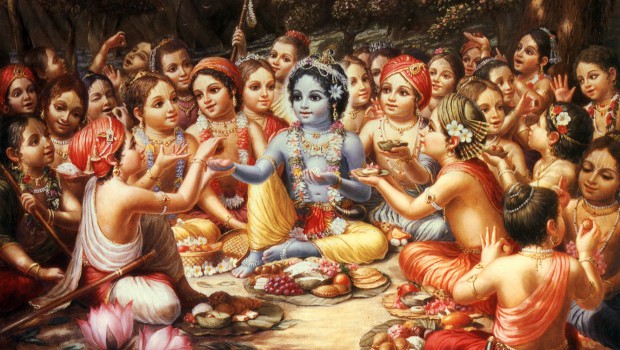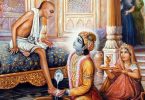Question: I have trouble in understanding the Bhagavad Gita purports to text 16 and 17 of 5th chapter. The last line of purport to text 16 is “…Identity with individuality in spiritual life is real knowledge.” The last two lines of the purport to text 17 are “…A Krishna conscious person can thoroughly understand that there is duality (simultaneous identity and individuality) in Krishna, and, equipped with such transcendental knowledge, one can make steady progress on the path of liberation.”
Please explain how does the living entity maintain his individuality? I have a specific nature. After becoming Krishna conscious, I change all my desires to fulfill Krishna’s desire. So, how do we maintain our individuality?
Answer by Romapada Swami:
Fulfilling Krishna’s desire or surrendering to His will does not require giving up one’s individuality. We are not expected to become something like an automaton programmed to follow commands from the Lord. Liberated souls have variegated desires to serve the Lord according to their own specific individual natures, and the Lord is very pleased to reciprocate with them in different ways.
Srila Prabhupada explains this in Isopanishad: “(We should) play the part designated for us by the Lord. This does not mean that the individual soul has no initiative of his own. Because he is part and parcel of the Lord, he must partake of the initiative of the Lord as well. When a person properly utilizes his initiative, or active nature, with intelligence, understanding that everything is the Lord’s potency, he can revive his original consciousness.” (Isopanishad Mantra 4 purport)
As infinitesimal part and parcel of the Lord, each of us has our minute individuality. In the conditioned state, the soul’s desires are perverted and his true nature is eclipsed due to association with the modes of material nature; i.e. what we think of as our ‘nature’ in the conditioned state is simply a designation based on the material body and mind. In the practice stage of sadhana bhakti, we purify our desires by engaging them in Krishna’s service under the guidance of guru, sadhu and shastra.
Even in this condition, it is not recommended that we annihilate our desires, but only replace them with desires for service to Krishna. In the initial stages, our initiatives need to be taken up under careful guidance and based on scriptural direction, because our capacity for proper use of free will and the spontaneous attraction to serve Krishna have not yet awakened. The spiritual master expertly helps us engage our particular natures in the Lord’s service. Through careful practice of regulated devotional service, our original nature or individuality is revived.
When we speak of simultaneous oneness and individuality, the oneness refers to oneness of interest with the beloved. In Nectar of Devotion (Chapter 40), there is a description of the reverential devotion exhibited by Pradyumna, Krishna’s son. Pradyumna would immediately accept Krishna’s orders as if nectar, even though it may have been poison and reject whatever Krishna disapproved even if he personally considered it nectar. In other words, devotees are not devoid of personal tastes and preferences but they subordinate their will, out of love, to that of their beloved. Sometimes, however, very exalted and intimate associates of the Lord may even exhibit desires contrary to Krishna’s wishes – as we sometimes find in the activities of Lord Balarama or the gopis – but their ultimate goal is simply to enhance the Lord’s pleasure.







